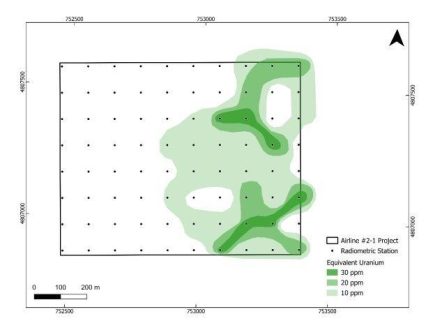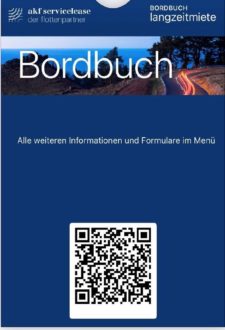Aztec Reports Final Phase 2 RC Drill Results from Tombstone Project, Arizona; Including 2.44 gpt Gold and 66.56 gpt Silver (3.39 gpt AuEq) over 65.5 m with 16.80 gpt gold and 374.36 gpt silver (22.15 gpt AuEq) over 7.6 m
- 5 more holes drilled under the north and north-central Contention pit confirm and expand the high grade, near surface, oxidized gold-silver mineralization
- 23-hole program final results continue to expand the width and length of mineralization below the Contention Pit
Aztec Minerals Corp. (AZT: TSX-V, OTCQB: AZZTF – https://www.commodity-tv.com/ondemand/companies/profil/aztec-minerals-corp/) reports assay results for the final five holes, TR21-19 to 23, from its now completed 2021, Phase 2, 23-hole, 2,716 metre reverse circulation (RC) drill program on the Tombstone project which covers most of the historic Tombstone silver mining district in southeastern Arizona.
The five holes were drilled on three fence patterns plus one additional hole to step out to the east, west, and north from the 2020 drill holes reported previously in the north and central parts of the Contention open pit. Two of the drill holes (TR21-21, 22) were twins of historic USMX drill holes TR-57 and TR-67, which along with one 2020 twin drill hole (TR20-18) verify the USMX drill data for use in a resource calculation.
Every one of the five holes intersected near surface, oxidized gold-silver mineralization, three holes crossed old tunnels where presumably most of the highest-grade ores were previously mined, and all five holes bottomed in high grade mineralization, indicating the main mineralized zones are still open to depth and laterally.
Drill Highlights
- Hole TR21-19 – 0.78 grams per tonne (gpt) gold and 81.60 gpt silver (1.94 gpt gold equivalent (AuEq)) over 9.1 meters (m). The intercept starts with a 1.5 m wide tunnel and the final interval assayed 1.154 gpt AuEq after which the hole had to be terminated due to caving. This hole stepped out 60 m east from section M, and indicates that the mineralization in the drill holes TR-03 to TR-05 and TR-20 appears to be separate and distinct from the mineralized zone mined in the open pit, which also remains open to the east (See section link).
- Hole TR21-20 – 0.25 gpt gold and 15.20 gpt silver (0.46 gpt AuEq) over 47.3 m including 7.6 m of open mine workings. The drill hole was terminated in mineralization due to caving with the last sample assaying 1.283 gpt AuEq. This hole is a vertical step out 30 m to the west of section M and shows the mineralization is open to the west and at depth.
- Hole TR21-21 – 0.80 gpt gold and 15.05 gpt silver (1.01 gpt AuEq) over 18.3 m including 3.0 m of mine workings, another 4.7 m of mine workings lower down the hole and caving caused termination of this hole in mineralization grading 1.997 gpt AuEq. This hole was a step out 60 m north of TR20-09 in order to twin USMX drill hole TR-057, and it demonstrates the mineralization is open to the north, east, and at depth (See section link).
- Hole TR21-22 – 2.44 gpt gold and 66.56 gpt silver (3.39 gpt AuEq) over 65.5 m, including 80 gpt gold and 374.36 gpt silver (22.15 gpt AuEq) over 7.6 m. This hole ended in mineralization grading 1.045 gpt AuEq where it was terminated due to caving. TR21-22 is a 55 m step out east of drill holes TR21-17 and TR21-18 on section K. It is a twin of USMX hole TR-067, and shows the mineralization in the pit is open to the east and at depth (see section link).
- Hole TR21-23 – 0.56 gpt gold and 16.62 gpt silver (0.79 gpt AuEq) over 24.4 m. It is a step out to the west of holes (R21-01,02 on section O, and shows the mineralization is open to the west and at depth (See section link).
Aztec CEO, Simon Dyakowski commented, “Our 2021 Phase 2 RC drill program is now complete and these final results continue to show strong grades over broad widths, confirming and expanding the historic gold and silver mineralized zones both along strike and down dip. Holes 21-19 to 23 confirm the geological continuity between Aztec’s 2020 and 2021 drill holes and the historic USMX drill holes, and the mineralization remains wide open in all directions.”
“Our 2020 and 2021 drill programs targeted the near-surface mineralization around and below the Contention pit for a substantial bulk tonnage, epithermal gold-silver vein deposit with open pit, heap leach potential, and results to date have clearly confirmed this potential. As we have reported the final 2021 drill results, we will now consider a Phase 3 core drill program to continue extending the near surface, oxidized gold-silver mineralization to depths of 150-200 m, as well as some much deeper 500-750 m holes to test for “Taylor” CRD polymetallic massive sulfide mineralization underlying the near surface epithermal mineralization.”
Gold equivalents are calculated using a 70:1 silver:gold ratio. Reported lengths are apparent widths, not true widths. The gold – silver mineralization zones are generally west dipping at around 60-80 degrees, associated with the quartz-feldspar porphyry dikes. However, these dikes also extend at shallow angles out from the Contention fault along fold noses in the Bisbee clastic sediments so the full range of mineralization dips vary from 20 to 80 degrees. True widths for the apparent mineralization intersection widths of the five holes approximately range from 50 to 100% of the apparent widths, with the norm for the mineralized true widths being 60 to 90% of the apparent widths.
View drill sections here:
Link to section view holes TR21-19, TR21-20
Link to section view hole TR21-21
Link to section view hole TR21-22
Link to section view hole TR21-23
All five holes intersected extensive gold and silver mineralization, see assay intervals in the table below, extending the mineralized zones at depth and along strike, below and west of the Contention open pit. Three of the five holes also intersected old mine workings, likely dating back to the late 1800’s, indicating that some of the highest-grade bonanza mineralization in the area drilled was previously mined.
The 2021 drill holes were collared along the west side of the north and central parts of the Contention Pit and intersected mineralization over north-south length of 400 meters by up to 150 m of east-west width and to maximum depths of 175 m. The combined 2020 and 2021 drilled area spans 900 m long by over 230 m wide and to maximum depths of 175 m, with gold-silver mineralization still open in all directions.
Tombstone RC Drilling Plan Map
The low sulfidation epithermal gold-silver mineralization observed to date is impressive, marked by hydrothermal breccias, quartz veining and silicification associated with quartz-feldspar porphyry dikes and moderate to strong potassic, argillic and advanced argillic alteration and hornfels within the host Bisbee sandstones and siltstones. Areas of intense hematite, goethite and manganese wad are extensive, associated with quartz-calcite veins and localized skarn alteration in limestones. Cerargyrite (silver chloride) is observed in fractures, often with fine-grained visible gold. Most silver and gold mineralized zones intersected in the 2020 and 2021 drill programs are proximal to and in the hanging-walls and footwalls of old underground mine workings.
Aztec has completed the 2,716 m and 23-holes of the originally planned 2,900 metre, 20-hole Phase 2 reverse circulation (RC) drilling program at the Tombstone Property. The company has reported assays for 23 holes. Samples were regularly shipped to and received by the Bureau Veritas Minerals laboratory in Hermosillo, Mexico for geochemical analysis.
Tombstone Project Overview
Aztec holds a 75% interest in the Tombstone Property Joint Venture, which includes most of the original patented mining claims in the district as well as some recently acquired properties. The main target of the 2021 Phase 1 RC drill program is to continue testing the shallow, bulk tonnage, heap leachable, epithermal gold-silver oxide mineralization adjacent and below the previously mined Contention pit by infill and step-out drilling. Future drilling is expected to focus on strike and dip extensions of the shallow oxide mineralization, and move deeper to test for larger, deeper “Taylor-type” CRD targets along and adjacent to the Contention structure.
Allen David Heyl, B.Sc., CPG., VP Exploration, is the Qualified Person overseeing the Tombstone exploration program. Drill cuttings are collected every 5 feet (1.52m) from all drill holes. The samples were analyzed for gold with a 30-gram sample size using the method FA430 followed by MA300. Over limits, when present, are analyzed by MA370 or FA530. All holes contain certified blanks, standards, and duplicates as part of the quality control program. The QA/QC has delivered excellent results to date good data integrity. Mr. Heyl reviewed and approved the technical disclosures in this news release.
“Simon Dyakowski”
Simon Dyakowski, Chief Executive Officer
Aztec Minerals Corp.
About Aztec Minerals – Aztec is a mineral exploration company focused on the discovery of large polymetallic mineral deposits in the Americas. Our core asset is the prospective Cervantes porphyry gold-copper property in Sonora, Mexico. The historic, district-scale Tombstone properties host both bulk tonnage epithermal gold-silver as well as CRD silver-lead-zinc mineralization in Cochise County, Arizona. Aztec’s shares trade on the TSX-V stock exchange (symbol AZT) and on the OTCQB (symbol AZZTF).
Swiss Resource Capital AG
Poststrasse 1
CH9100 Herisau
Telefon: +41 (71) 354-8501
Telefax: +41 (71) 560-4271
http://www.resource-capital.ch
CEO or Bradford Cooke, Chairman
Telefon: +49 (604) 619-7469
Fax: +49 (604) 685-9744
E-Mail: simon@aztecminerals.com
CEO
Telefon: +41 (71) 3548501
E-Mail: js@resource-capital.ch
![]()



